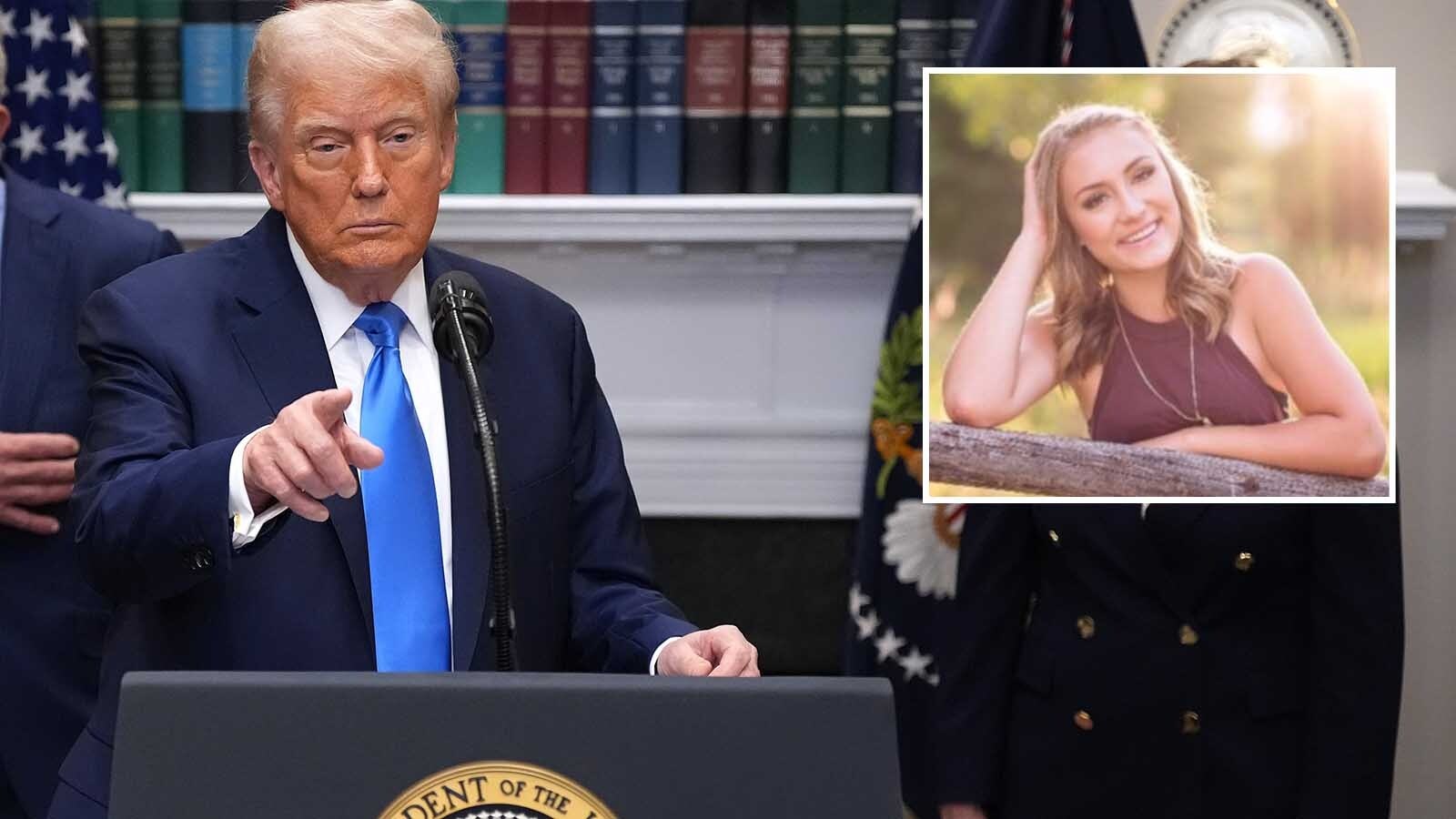Riverfront acreage near Teton Village. Parcels close to scenic lakes outside Pinedale. Lots above the mountain hamlet of Shell.
These, along with thousands of other public, federally owned parcels are identified as potentially up for sale as the U.S. Senate explores letting go of some public land as part of the One Big Beautiful Bill Act that passed the House in May and was taken up by the Senate on Thursday.
A U.S. Interior Department map shows hundreds of BLM parcels throughout Wyoming that appear designated for potential “disposal.”
The renewed push for public land sales comes as Senate Energy and Natural Resources Committee Chairman Mike Lee, R-Utah, works to include land disposal provisions in what Republicans are calling a "megabill."
The BLM map identifies numerous Wyoming parcels categorized for either "Sale" or “Sale Exchange” across some of the state's most desirable locations.
The Wilderness Society reports there are 849,000 “disposal acres” identified by BLM maps.
In Jackson, several parcels outlined in pink and categorized as “Sale Exchange” sit near town along the Snake River. An additional parcel outlined in green and marked for outright "Sale" sits just outside the resort community of Teton Village.
Near Pinedale, "Sale Exchange" parcels are positioned near the banks of Willow Lake and Fremont Lake, areas known for their recreational value and scenic beauty.
Around Greybull, a large "Sale" parcel sits adjacent to the local airport, while additional "Sale Exchange" parcels stretch toward the Bighorn Mountains, possibly in areas considered prime for second homes and resort development.
"Those look like 'lands available for disposal' out of all the resource management plans," said Brad Purdy, senior advisor at the Wyoming BLM state director's office. "Every resource management plan identifies lands available for disposal. This is not something new, this has always been the case."
What is new, say conservation groups and others opposing the sale of public land, is the U.S. Senate’s outward enthusiasm for selling BLM lands identified for "disposal."
Political Maneuvering
The public land sales discussion gained momentum Thursday as Senate Republicans worked to finalize their budget reconciliation package.
The Senate Energy and Natural Resources Committee is looking to release updated budget reconciliation language next week.
Sen. Cynthia Lummis is aligning with senators who want to see some public land sold.
"I support Sen. Mike Lee's efforts to address the reality that federal ownership of nearly half of all Western land — exceeding 50% in states like Wyoming, Nevada and Utah — creates significant challenges for local communities, state governments, and efficient land management," Lummis said in a statement to Cowboy State Daily.
"The federal government doesn't need to perpetually own every piece of land it currently holds, and we must have honest conversations about smart, strategic land management that serves our communities while protecting our natural treasures,” added Lummis.
Lummis and other Lee supporters insist that whatever the Senate decides regarding public land sales, it will not impact places like Yellowstone National Park, Grand Teton National Park, Medicine Bow National Forest and other crown jewels of the public land system.
Supporters say they want to focus on lands already listed on the BLM's "disposal list.”
Sen. John Barrasso has consistently supported federal land sales when they serve the interests of states, local communities and the public, according to a statement from his office.
House Precedent
The public land sales concept gained traction earlier this year when Rep. Harriet Hageman supported an amendment that could have put 500,000 acres of public land in Utah and Nevada up for sale as part of the House's Big Beautiful Bill Act.
However, Rep. Ryan Zinke, R-Montana, successfully stripped the provision from the legislation before the vote.
In defending her position, Hageman argued that strategic land management discussions are appropriate given federal mismanagement issues.
"The federal government owns over 600 million acres and controls even more through such things as perpetual conservation easements. I believe that is enough," Hageman said in a statement to Cowboy State Daily. "In Wyoming, public lands such as Yellowstone, Grand Teton, Devils Tower and wilderness areas are not only symbolic of our state, but national treasures, and should of course be federally owned and protected."
Hageman emphasized that targeted land sales could address specific community needs while maintaining protection for treasured landscapes.
"Wyoming has localities landlocked from further housing development, has areas devastated by wildfire originating on federal lands due to mismanagement," she said. "It is thus appropriate to consider a wide array of management options for particular parcels based on what is in the best interests of our communities, state and nation."
Push Back
Predictably, conservation organizations like the Wyoming Wilderness Association and other groups are expressing strong opposition to the land sales proposals.
"We agree with Congresswoman Hageman's statement that we should all be willing to engage in discussions about how our public lands are managed," said Martha Tate Jenkins, executive director of the Wyoming Wilderness Association.
"However, there are processes in place for these conversations that take into consideration varied perspectives and use tools grounded in science and public input to determine management, as well as disposal of federal lands for public purpose,” she added.
Jenkins backed Zinke's successful effort to remove public land sales from the House bill, quoting his statement: "We do not support the widespread sale or transfer of public lands. Once the land is sold, we will never get it back. God isn't creating more land."
The Wyoming Wilderness Association argues that state ownership of federal lands would inevitably lead to private sales, citing Wyoming's recent failed legislative effort to demand federal land transfers to state control.
"The state does not have the resources or plans in place to manage what is nearly half the land mass of Wyoming," Jenkins said. "Thus, state ownership of these lands would inevitably lead to their private sale, locking them up from public use, enjoyment, and the economic stimulus they bring to our communities."
Regional Concerns
Patrick Donnelly, Great Basin director at the Center For Biological Diversity, expressed specific concerns about the broader implications of public land sales across the West.
"We are deeply concerned with these proposed public land sales," Donnelly said, arguing the sale of public land could allow Las Vegas and Reno to sprawl outward into the desert, compounding Nevada's water crisis and fueling unrestrained growth of subdivisions and warehouses.
Donnelly warned that the precedent could extend beyond the initial targeted areas, saying the whole idea is, “Threatening our national heritage by proposing a public lands fire sale to fund tax cuts for billionaires. And there's no indication that the GOP would stop there."
He noted Wyoming's economic dependence on public lands.
"Folks in Wyoming know the value that public lands provide to the state, both recreationally and for subsistence but also economically,” said Donnelly. “Privatizing those lands would harm everyone."
Conservation groups point to the Kelly Parcel near Jackson as an example of successful public land protection, noting it was ultimately sold and added to Grand Teton National Park rather than developed privately.
David Madison can be reached at david@cowboystatedaily.com.








